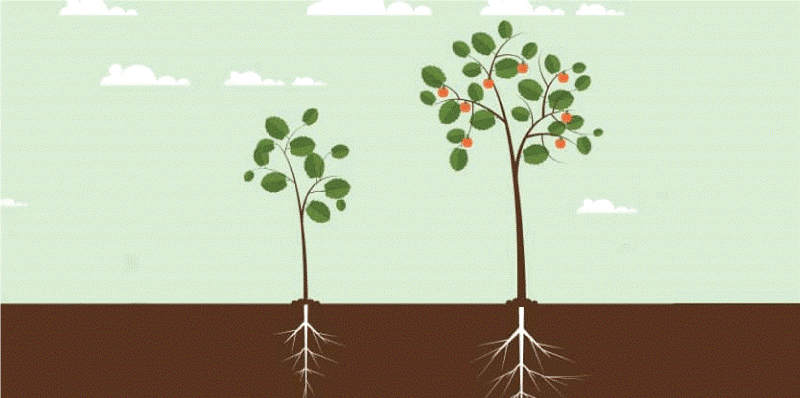Discipline DefinitionIntroduction to DisciplineDiscipline is a concept that has been integral to human society for centuries. It refers to training oneself or others to follow the rules or principles to achieve a desired outcome. In general, discipline involves the development of self-control, self-regulation, and self-motivation to achieve personal or professional goals. The term 'discipline' is often associated with punishment, but this is only one aspect. Discipline can also be a positive force, providing structure, guidance, and direction. Discipline is essential to success in any area of life, whether it be education, career, relationships, or personal growth. Discipline involves setting clear goals, developing strategies to achieve them, and sticking to them even when faced with obstacles or distractions. It requires a commitment to hard work, self-improvement, and personal responsibility. Discipline is not always easy, but it is necessary for achieving long-term success and fulfillment. There are many different forms of discipline, ranging from physical exercise and meditation to time management and financial planning. Each discipline requires skills and techniques, but they all share the goal of helping individuals become more self-aware and focused. Discipline is not something that can be imposed from the outside. It must be cultivated from within through self-reflection, self-awareness, and self-discipline. However, it is also important to recognize that discipline is not a one-size-fits-all solution. People have different strengths, weaknesses, and preferences, and what works for one person may not work for another. Ultimately, the key to successful discipline is balancing structure and flexibility. Having clear goals and a plan for achieving them is important, but it is also important to be adaptable and open to new opportunities and experiences. With the right mindset, discipline can be a powerful tool for achieving success and happiness. The Meaning and Importance of Discipline
Discipline is a concept that refers to the practice of training oneself or others to follow a set of rules or principles to achieve a desired outcome. It is a crucial aspect of personal and professional development, as it requires individuals to develop self-control, self-regulation, and self-motivation to achieve their goals. The importance of discipline lies in its ability to provide structure and guidance in our lives. It helps individuals to stay focused and motivated, even in the face of obstacles or distractions. Without discipline, it is easy to become overwhelmed or lose sight of our goals. Discipline helps us prioritize our time and energy to achieve what matters most. Discipline is also important because it helps to develop important life skills, such as time management, organization, and self-motivation. These skills are essential to success in any area of life, whether it be education, career, relationships, or personal growth. Individuals can develop these skills by cultivating discipline and becoming more effective and efficient. Moreover, discipline is essential for developing a sense of personal responsibility and accountability. It requires individuals to take ownership of actions and their outcomes and recognize that their choices have consequences. This can motivate positive change, encouraging individuals to make choices aligned with their values and goals. Finally, discipline is important because it helps to build resilience and mental toughness. It requires individuals to push themselves beyond their comfort zones, persevere in facing challenges, and learn from failure. By developing these qualities, individuals can become more resilient, adaptable, and better equipped to handle the ups and downs of life. In summary, discipline is a crucial aspect of personal and professional development. It provides structure, guidance, and direction in our lives and helps us to develop important life skills and qualities. Individuals can become more effective, efficient, and resilient by cultivating discipline, ultimately achieving greater success and fulfillment. Discipline in Different Contexts: Examples and ApplicationsDiscipline can take many forms depending on the context in which it is applied. Here are some examples:
These examples demonstrate that discipline can be applied in a variety of contexts and can take many different forms. However, the common thread in these contexts is the importance of self-control, self-regulation, and self-motivation in achieving success and fulfillment. Types of Discipline
There are two main types of discipline: positive and negative. Positive discipline involves using rewards, encouragement, and praise to reinforce positive behavior. This approach focuses on acknowledging and supporting desirable behaviors rather than punishing undesirable ones. Positive discipline effectively promotes self-esteem, motivation, and self-motivation and can help build positive relationships based on trust and respect. Negative discipline, on the other hand, involves punishment, criticism, or other forms of negative feedback to discourage undesirable behavior. This approach focuses on correcting or punishing undesirable behaviors rather than promoting positive ones. Negative discipline can effectively prevent or stop unwanted behavior but can also be demotivating and lead to negative feelings like shame or guilt. It is important to note that both types of discipline have their place and can be effective in different situations. Positive discipline is often more effective in promoting long-term behavior change, while negative discipline may be more effective in stopping unwanted behavior in the short term. However, using positive discipline as much as possible is generally recommended, as it promotes a more positive and supportive learning environment and encourages positive self-motivation. The Role of Discipline in Personal and Professional DevelopmentDiscipline plays a crucial role in personal and professional development by providing structure, direction, and guidance in our lives. To achieve our goals and aspirations, we need to develop self-control, self-regulation, and self-motivation, all key aspects of the discipline. In personal development, discipline helps us to develop important life skills, such as time management, organization, and self-motivation. By cultivating discipline, we can become more effective and efficient in pursuing our personal goals and develop the resilience and mental toughness needed to overcome challenges and setbacks. In professional development, discipline is essential for success in any career. It requires individuals to develop the necessary skills, knowledge, and work habits that lead to success in their chosen field. By cultivating discipline in the workplace, individuals can become more productive, efficient, and effective in achieving their professional goals. They can also develop leadership, accountability, and responsibility qualities essential for career advancement. Overall, discipline is a fundamental aspect of personal and professional development. It plays a vital role in helping individuals achieve their goals, maximize their potential, and become the best version of themselves. Challenges and Strategies for Maintaining Discipline
Maintaining discipline can be challenging, especially in today's fast-paced and often distracting world. Here are some common challenges and strategies for overcoming them: Procrastination: One of the biggest challenges to discipline is procrastination. To overcome this, set clear goals, break down tasks into smaller, more manageable steps, and use tools like to-do lists or productivity apps to stay on track. Distractions: Technology, social media, and other distractions can make it difficult to stay focused. Try to eliminate or minimize distractions by creating a quiet workspace, using apps that block social media or other distractions, or setting specific times for checking email or social media. Lack of motivation: Sometimes, it can be hard to stay motivated, especially when working on long-term goals. To stay motivated, remind yourself of the benefits of achieving your goals, visualize your success, and seek support from friends, family, or a mentor. Burnout: Overworking and neglecting self-care can lead to burnout, making it difficult to maintain discipline. To avoid burnout, prioritize self-care activities like exercise, meditation, or spending time with loved ones. Maintaining discipline requires self-awareness, self-control, and a willingness to adapt and make necessary changes. By staying focused on your goals, developing good habits and routines, and seeking support when needed, you can overcome challenges and maintain discipline in all areas of your life. Conclusion: Embracing Discipline as a Way of Life
Discipline is not just a skill or a habit but a way of life. Embracing discipline means committing to values and principles that guide our actions and decisions. It means taking responsibility for our choices and actions and striving for excellence in all we do. Discipline is not easy but essential for personal and professional growth. It requires effort, commitment, and perseverance, but the rewards are significant. By cultivating discipline, we can become more focused, productive, and effective in achieving our goals. We can develop the resilience and mental toughness needed to overcome challenges and setbacks and become the best version of ourselves. To embrace discipline as a way of life, we must develop the mindset and habits that support it. We must set clear goals, establish routines and practices that help our goals, and develop the self-awareness and self-control needed to stay on track. We must also be willing to make sacrifices, delay gratification, and push ourselves outside our comfort zones to achieve our goals. Discipline is about self-control, self-motivation, and developing positive relationships based on trust, respect, and accountability. It means being accountable to ourselves and others and taking responsibility for our actions and decisions. It also means treating others with respect and empathy and working collaboratively to achieve shared goals. In conclusion, embracing discipline as a way of life is a powerful way to achieve personal and professional success. It requires effort, commitment, and perseverance, but the rewards are significant. By cultivating discipline, we can become more focused, productive, and effective in achieving our goals. We can develop the resilience and mental toughness needed to overcome challenges and setbacks and become the best version of ourselves.
Next TopicEnantiomers Definition
|
 For Videos Join Our Youtube Channel: Join Now
For Videos Join Our Youtube Channel: Join Now
Feedback
- Send your Feedback to [email protected]
Help Others, Please Share










